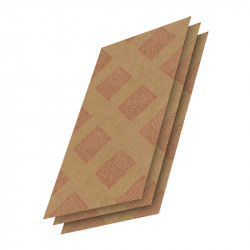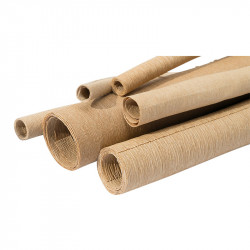Jūs turite būti prisijungę
-
sugrįžtiX
-
Komponentai
-
-
Category
-
Puslaidininkiai
- Diodai
- Tiristoriai
-
Elektroizoliuoti moduliai
- Elektrai izoliuoti moduliai | VISHAY (IR)
- Elektrai izoliuoti moduliai | INFINEON (EUPEC)
- Elektrai izoliuoti moduliai | Semikronas
- Elektrai izoliuoti moduliai | POWEREX
- Elektrai izoliuoti moduliai | IXYS
- Elektrai izoliuoti moduliai | POSEICO
- Elektrai izoliuoti moduliai | ABB
- Elektrai izoliuoti moduliai | TECHSEM
- Eikite į subkategoriją
- Lygintuviniai tilteliai
-
Tranzistoriai
- Tranzistoriai | GeneSiC
- SiC MOSFET moduliai | Mitsubishi
- SiC MOSFET moduliai | STARPOWER
- „ABB SiC MOSFET“ moduliai
- IGBT moduliai | MITSUBISHI
- Tranzistorių moduliai | MITSUBISHI
- MOSFET moduliai | MITSUBISHI
- Tranzistorių moduliai | ABB
- IGBT moduliai POWEREX
- IGBT moduliai INFINEON (EUPEC)
- Silicio karbido puslaidininkiniai elementai
- Eikite į subkategoriją
- Valdikliai
- Galios blokai
- Eikite į subkategoriją
- Elektrinių dydžių keitikliai
-
Pasyvūs komponentai (kondensatoriai, rezistoriai, saugikliai, filtrai)
- Rezistoriai
-
Saugikliai
- ABC ir AGC serijos miniatiūriniai saugikliai elektronikai
- Greitaeigiai cilindriniai saugikliai
- Uždelsimo elementai su GL/GG ir AM charakteristikomis
- Ultragreiti intarpai - saugikliai
- Didžiosios Britanijos ir JAV standartų greitaeigiai saugikliai
- Europos standarto greitaeigiai saugikliai
- Saugikliai geležinkeliui
- Aukštos įtampos saugikliai
- Eikite į subkategoriją
-
Kondensatoriai
- Kondensatoriai varikliams
- Elektrolitiniai kondensatoriai
- Snubbers tipo kondensatoriai
- Galios kondensatoriai
- Kondensatoriai DC grandinėms
- Kondensatoriai galios kompensavimui
- Aukštos įtampos kondensatoriai
- Kondensatoriai indukciniam kaitinimui
- Impulsiniai ir energijos kaupimo kondensatoriai
- DC LINK kondensatoriai
- AC / DC grandinių kondensatoriai
- Eikite į subkategoriją
- Slopinimo tinklo filtrai
- Superkondensatoriai
- Apsauga nuo viršįtampių
- TEMPEST spindulių aptikimo filtrai
- Viršįtampių ribotuvas
- Eikite į subkategoriją
-
Relės ir kontaktoriai
- Relių ir kontaktorių teorija
- Trijų fazių puslaidininkinės AC relės
- Puslaidininkinės DC relės
- Reguliatoriai, valdikliai ir jų priedai
- Soft starteriai (minkšto paleidimo įrenginiai) bei reversiniai kontaktoriai
- Elektromechaninės relės
- Kontaktoriai
- Rotaciniai jungikliai
-
Vienos fazės puslaidininkinės AC relės
- AC vienfazės puslaidininkinės relės 1 | D2425 | D2450 serijų
- AC vienfazės puslaidininkinės relės CWA ir CWD serijų
- AC vienfazės puslaidininkinės relės CMRA ir CMRD serijų
- AC vienfazės puslaidininkinės relės PS serijos
- AC puslaidininkinės dvigubos ir keturgubos relės D24 D, TD24 Q, H12D48 D serijų
- Vienfazės puslaidininkinės relės gn serijos
- AC vienfazės puslaidininkinės relės CKR serijos
- AC vienfazės relės DIN bėgiams ERDA ir ERAA serijų
- Vienfazės kintamosios srovės relės, skirtos 150A srovei
- Dvigubos kietojo kūno relės, integruotos su radiatoriumi DIN bėgiui
- Eikite į subkategoriją
- Vienos fazės puslaidininkinės AC relės spausdinimo plokštėms
- Interfejsų relės
- Eikite į subkategoriją
- Indukciniai elementai
- Radiatoriai, varistoriai, termo apsauga
- Ventiliatoriai
- Kondicioneriai, elektros spintų aksesuarai, aušintuvai
-
Baterijos, įkrovikliai, buferiniai maitinimo šaltiniai ir keitikliai
- Baterijos, įkrovikliai - teorinis aprašymas
- Ličio jonų baterijos. Individualios baterijos. Baterijų valdymo sistema (BMS)
- Akumuliatoriai
- Akumuliatorių įkrovikliai ir priedai
- UPS atsarginis maitinimo šaltinis ir buferiniai maitinimo šaltiniai
- Fotoelektros keitikliai ir priedai
- Energijos kaupimas
- Kuro elementai
- Ląstelės litio-joninės
- Eikite į subkategoriją
-
Automatikos komponentai
- Spiralift keltuvai
- Futaba dronų dalys
- Galiniai jungikliai, mikrojungikliai
- Jutikliai, keitikliai
- Pirometrai
- Skaitikliai, laiko relės, paneliniai matuokliai
- Pramoniniai apsaugos įrenginiai
- Šviesos ir garso signalizacija
- Terminio vaizdo kamera
- LED švieslentės
- Valdymo aparatūra - mygtukai ir jungikliai
- Eikite į subkategoriją
-
Laidai, pynės, laidų apsauginės žarnos, lankstūs sujungimai
- Laidai
- Kabelių įvadai ir movos
- Daugiagisliai laidai
-
Kabeliai ekstremalioms sąlygoms
- Kompensaciniai ir prailginimo kabeliai
- Laidai termoporoms
- PT jutikliams prijungimo laidai
- Daugiagysliai laidai temp. -60C iki +1400C
- Vidutinės įtampos kabeliai
- Uždegimo laidai
- Šildymo laidai
- Viengysliai laidai temp. -60C iki +450C
- Geležinkelio kabeliai
- Šildymo kabeliai Ex zonoms
- Eikite į subkategoriją
- Apsaugos vamzdeliai
-
Pintinės
- Plokščios pintinės
- Apvalios pintinės
- Plokščios labai elastingos pintinės
- Apvalios labai elastingos pintinės
- Cilindro formos vario pintinės
- Vario cilindrinės pintinės su apsauga
- Elastingos įžeminimo juostos
- Cinkuoto ir nerūdijančio plieno cilindrinės pintinės
- PCV izoliuotos vario pintinės - temperatūra iki 85 C
- Plokščios aliuminio pintinės
- Sujungimo komplektas - pintinės ir vamzdeliai
- Eikite į subkategoriją
- Aksesuarai geležinkeliams
- Kabelių antgaliai
- Lanksčios izoliuotos šynos
- Daugiasluoksnės lanksčios šynos
- Laidų pravedimo sistemos (PESZLE)
- Eikite į subkategoriją
- Žiūrėti visas kategorijas
-
Puslaidininkiai
-
-
- Tiekėjai
-
Pritaikymų sąrašas
- CNC staklės
- Energetika
- Energy bank
- Indukcinis kaitinimas
- Įranga ir komponentai sprogimo pavojaus zonoms (Ex)
- Kasyklos, metalurgijos ir liejimo pramonė
- Laboratoriniai ir moksliniai matavimai
- Maitinimo šaltiniai (UPS) ir lygintuvinės sistemos
- Medienos džiovinimo ir apdirbimo mašinos
- Nuolatinės ir kintamos srovės pavaros (keitikliai)
- Paskirstymo, valdymo ir telekomunikacijos spintų įranga
- Plastmasių liejimo mašinos
- Poligrafija
- Pramoninė apsaugos įranga
- Pramoninė automatika
- Suvirinimo aparatai
- ŠVOK automatika
- Temperatūros matavimas ir nustatymas
- Tramvajų ir traukinių pavaros
- Varikliai ir transformatoriai
-
Montavimas
-
-
Induktoriai
-
-
Indukciniai įtaisai
-
-
Aptarnavimas
-
- Kontaktai
- Zobacz wszystkie kategorie
Alyvos transformatorių izoliacinės medžiagos
Dacpol Company offers an extensive range of flexible insulating materials, which are manufactured in B 130oC to H 180oC temperature classes. These materials are characterized by good dielectric properties and are delivered in rolls or sheets. There is also a...
Dacpol Company offers an extensive range of flexible insulating materials, which are...
Kategorijos
| Paveikslėlis | Peržiūrėti produkt | Gamintojo nr. | ||||
|---|---|---|---|---|---|---|
| -- |

|
-- | Popierius transformatoriams | PAMATYKITE | -- | Galimas kiekis |
| -- |

|
-- | Popieriniai vamzdeliai | PAMATYKITE | -- | Galimas kiekis |
Dacpol Company offers an extensive range of flexible insulating materials, which are manufactured in B 130oC to H 180oC temperature classes. These materials are characterized by good dielectric properties and are delivered in rolls or sheets. There is also a possibility to cut them or to deliver the finished slot insulation. Main usage fields are transformers and electric engines.
Insulating materials can be also delivered in the form of tapes. Such electro insulating tapes, which are used for production of electric and electronic components, should have the right electric and mechanical properties, and correspond to the required technical characteristics. Behind the simple reel of the adhesive tape there are complex material science problems, technologies and production processes.
Electro insulating adhesive tapes are used for:
- insulation,
- protection,
- labeling,
- mounting.
Insulation properties of the tape are determined by the type and thickness of the tape warp, insulation resistance, electrical durability of the warp’s dielectric, and the tape’s resilience to aging. One of the important indicators in the choice of the insulating tape is the consideration of the occurrence of electrolytic corrosion of the conduit in response to the chemical reaction with the tape’s components in the presence of electric potential, humidity and other environmental factors. Electrolytic corrosion can lead to breaching of the conduit or to puncturing of the enameled insulation of the thin wires e.g. in the reel of the transformer’s coil. To decrease the possibility of corrosion, the level of sulfur and hydrogens in the tape’s material should be lowered.
The protection of the products from various types of the damages is guaranteed by several of the tape’s parameters, such as insulation resistance, immunity to solvents, work temperature range, inflammability, and the resilience to ripping.
Many producers use the tapes for colorful labeling of their products and as an indication material. In this situation it is important for the tape not to fade, maintain good adhesive properties and usefulness for the labelling purposes. Lastly, the tapes are used for components and cable mounting. In this case, the most often considered parameters are: resilience to ripping/extending and their adhesive properties.
We offer impregnating paint in B 130, F 155 and H 180oC classes. We deliver them in the 1L, 5L, 20L containers and 200L barrels.
Main application of the paints is impregnation of the engine and transformer reels, conducted through: immersion, submerging, vacuum method, and droplet method.
We also offer polyurethane and epoxy resins. Our resins are bi-component. The polymerization of the resins can happen in the temperature of the environment or in a dryer in the increased temperature.
We deliver resins in 1L, 5L, 20L packages and 200L barrels. Main applications are the flooding of the electronic cables, electronic components and transformers.



